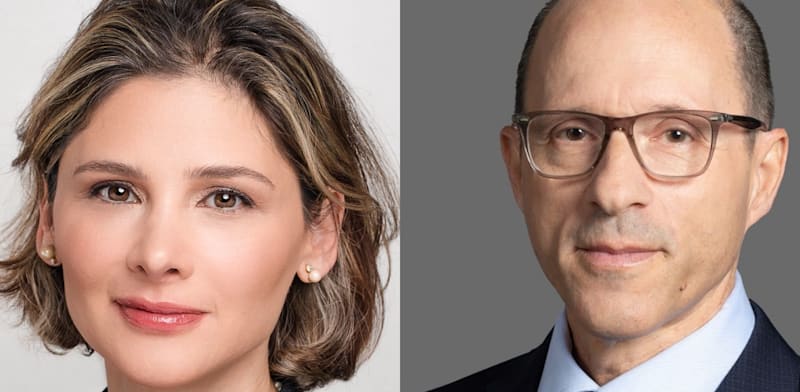Hedge funds have become an integral part of institutional portfolio management. They constitute some 7% of public pension assets and 18% of large endowment assets. But are hedge funds beneficial for most institutional investors?
To answer that question, I considered performance after fees and compatibility with institutional investors’ long-term investment goals. I found that hedge funds have been alpha-negative and beta-light since the global financial crisis (GFC). Moreover, by allocating to a diversified pool of hedge funds, many institutions have been unwittingly reducing their equity holdings.
So, while my answer is no, hedge funds are not beneficial for most institutional investors, I propose a targeted approach that may justify a small allocation. And I cite new research that leaves the merit of hedge fund investing open to debate among scholars.
Performance After Fees
Hedge fund managers typically charge 2% of assets under management (AUM) plus 20% of profits. According to Ben-David et al. (2023), hedge funds’ “2-and-20” fee structure adds up to more than “2-and-20.” Ben-David and his co-authors estimate that the effective incentive rate is 50%, which is 2.5 times greater than the nominal 20% figure.
The authors say, “This happens because about sixty percent of the gains on which incentive fees are earned are eventually offset by losses.”1 They calculate a 3.44% average annual cost of AUM for the hedge fund industry between 1995 and 2016. This is a heavy burden for what are essentially portfolios of publicly traded securities. How have the funds fared?
Hedge funds were star performers prior to the GFC, but then things changed. Cliff Asness shows how hedge funds ran out of gas. Maybe it was because hedge fund assets increased tenfold between 2000 and 2007.2 Maybe it was because of the accounting rule change regarding the valuation of partnership assets that took effect in 2008.3 And, possibly, increased regulatory oversight from the 2010 Dodd–Frank reforms “…chilled some profitable hedge fund trading….”4
In any event, diversified hedge fund investing appears to have underperformed in modern (post-GFC) times. For the 15 years ending June 30, 2023, the HFR Fund-Weighted Composite Index had an annualized return of 4.0%. This compares to a 4.5% return for a blend of public market indexes with matching market exposures and similar risk, namely, 52% stocks and 48% Treasury bills.5 By this measure, the hedge fund composite underperformed by 0.5% per year.6
The recent scholarly literature on hedge fund performance is mixed, however. Sullivan (2021) reports that hedge fund alpha began declining after the GFC. Bollen et al. (2021) reach a similar conclusion. On the other hand, a more recent paper by Barth et al. (2023) indicates that a newly emergent subset of hedge funds — those not included in vendor databases – has produced returns superior to those that do participate in the databases.
The reason for this is not entirely clear. Nevertheless, the revelation of the existence of these heretofore-overlooked funds suggests that they warrant further study and leaves the merit of hedge fund investing open to debate among scholars.
Hedge Fund Impact on Alpha
In our work, we focus on how alternative asset classes such as hedge funds have affected the alpha garnered by the institutional investor portfolios we study. This approach is concrete and pragmatic. We calculate the alphas of a large sample of pension funds. Then, we determine the sensitivity of alpha production among the funds to small changes in the percentage allocation to the asset class. Here, we are observing the return impact of each fund’s allocation to hedge funds and the performance impact of those hedge funds on the institutions’ bottom line. There is nothing nebulous or hypothetical about the procedure.
Our dataset of institutional funds comprises 54 US public pension funds. Using returns-based style analysis, we devised a benchmark for each of them and calculated their alpha over the 13 years ended 30 June 2021.7 The range of alphas is -3.9% to +0.8 per year, or a little less than five percentage points.
For each pension fund, we obtained the average allocation to hedge funds over the study period from the Public Plans Data resource of the Center for Retirement Research at Boston College. While some pension funds in the database allocated 0% to hedge funds, the average allocation was 7.3% and the maximum average allocation was 24.4%.
Exhibit 1 illustrates the result of regressing the alphas on the respective hedge fund allocation percentages. The slope coefficient of -0.0759 has a t-statistic of -3.3, indicating a statistically significant relationship. We can interpret the slope coefficient as follows: A decrease of 7.6 bps in total pension fund alpha is associated with each percentage point increase in the hedge fund allocation percentage.
The average allocation to hedge funds for the full 54-fund sample is 7.3% during the period under study. This translates to an alpha reduction of 0.55% per year at the total fund level for public funds in aggregate (0.073 x -7.6). That is a big hit for an asset class the constitutes less than 10% of AUM, as is the case for public pension funds in aggregate.
Exhibit 1. The Relationship Between Pension Fund Alpha and Hedge Fund Allocation (2009 to 2021)

Summing up so far: Hedge funds are diversified portfolios of publicly traded securities. A recent estimate of their cost to investors is 3.4% of AUM annually, which is a heavy burden. Using HFR data, we estimated that hedge funds underperformed a benchmark with matching market exposures and risk by 0.5% per year since the GFC.
The scholarly literature on hedge fund performance is mixed. Our evaluation of the impact of hedge fund investing on the performance of public pension funds since the GFC indicates that an average allocation of about 7% of assets has cost the funds, in aggregate, roughly 50 bps of alpha a year. Taken as a whole, these results challenge the wisdom of investing in hedge funds — at least in diversified fashion — as a source of value added.
Hedge Funds Are Not Stock Surrogates
Institutional investors have steadily increased their equity exposure over time. Public pension funds’ equity exposures have risen to more than 70% from 40% to 50% in 1980. Large endowments’ effective equity exposures have edged up to 80% to 85% in recent years. Institutional investors demonstrate sustained confidence that equities are the key to growth over the long run. More recently, these investors have been attracted to hedge funds for their added-value potential. But are hedge funds really a good fit for them, apart from their potential as active investments?
Asness (2018) offers anecdotal evidence of a common misperception about hedge funds. He argues that by comparing their performance to stock indexes such as the S&P 500, people tend to think of hedge funds as common stock surrogates. He reports, however, that hedge funds generally hedge their equities and have an equity exposure of just under 50%. So, hedge funds, in general, have a beta much lower than 1.0. Some hedge funds aim to maintain a beta as close to zero as possible.
Thus, in substituting hedge funds for stocks, investors may be unwittingly reducing their equity exposure. Exhibit 2 shows the relationship of effective equity exposure and the percentage allocated to hedge funds for our sample of 54 public funds. The intercept is a highly statistically significant 72.9% equities. A 1.6-percentage point lesser equity allocation is associated with a 7.3-percentage point hedge fund allocation, which is the average among the pension funds. (The t-statistic of the slope coefficient is -2.2, indicating statistical significance).
In other words, public pension funds with significant hedge fund allocations tend to have lower de facto equity allocations and, thus, may be unwittingly tamping down their equity market exposure.
Exhibit 2. The Relationship between Equity Exposure and Hedge Fund Allocation

Now, if hedge funds represented exceptional potential to add active return, allocating to them could be made tolerable by picking up additional equity exposure elsewhere.8 But we find convincing evidence of an alpha contribution to be lacking. Consequently, it seems to us that equity-beta-light hedge funds are not a particularly good fit for most long-term investors.
Avoid the Asset Class Fallacy
We believe exceptional talent, rare as it might be, exists in the ranks of hedge fund managers. Identifying exceptional managers and profiting from their skill is another matter. But we do not deny the existence of unusually skillful managers. A big problem for institutional investors is their penchant for over-diversifying active investments of all types, with hedge funds being no exception. Let’s say an institutional investor believes they can identify at least a few superior managers. How should they proceed?
First, in structuring the effort, the investor should focus on managers, not the asset class. Nothing is to be gained from declaring to the world, “We will place X% of our assets in hedge funds.” This is the asset class fallacy of hedge fund investing. It makes picking a passel of winning hedge funds sound routine, which it is not. In our judgment, the class of assets has little or nothing to offer. The allocation to hedge funds should ebb and flow with perceived opportunity in specific funds.
Second, we recommend restricting the total number of hedge funds to not more than about three or four to avoid smothering the exceptional talent of the best managers. Exhibit 3 illustrates the diversification of active risk resulting from using multiple managers.9 Using four managers rather than one cuts active risk in half. Further manager diversification produces only incremental risk reduction. But it quickly runs the risk of diluting the impact of the top selections.
Exhibit 3. The Diversification of Active Risk

Institutional investors interested in hedge funds face a conundrum. They can yield to the diversification instinct and trivialize asset class fallacy. Or they can choose a few managers that might make a difference. Or should they avoid hedge funds altogether?
For years, hedge fund investments have not only reduced the alpha of most institutional investors, but in many cases helped drive it negative. They have also deprived long-term investors of their desired equity exposure. There is no strategic benefit to having a diversified hedge fund allocation. If, however, an institution has access to a few truly exceptional hedge funds and can resist the temptation to diversify hedge fund exposure excessively, a small allocation may be warranted.
Acknowledgement
I thank Antti Ilmanen for his helpful comments.
References



























